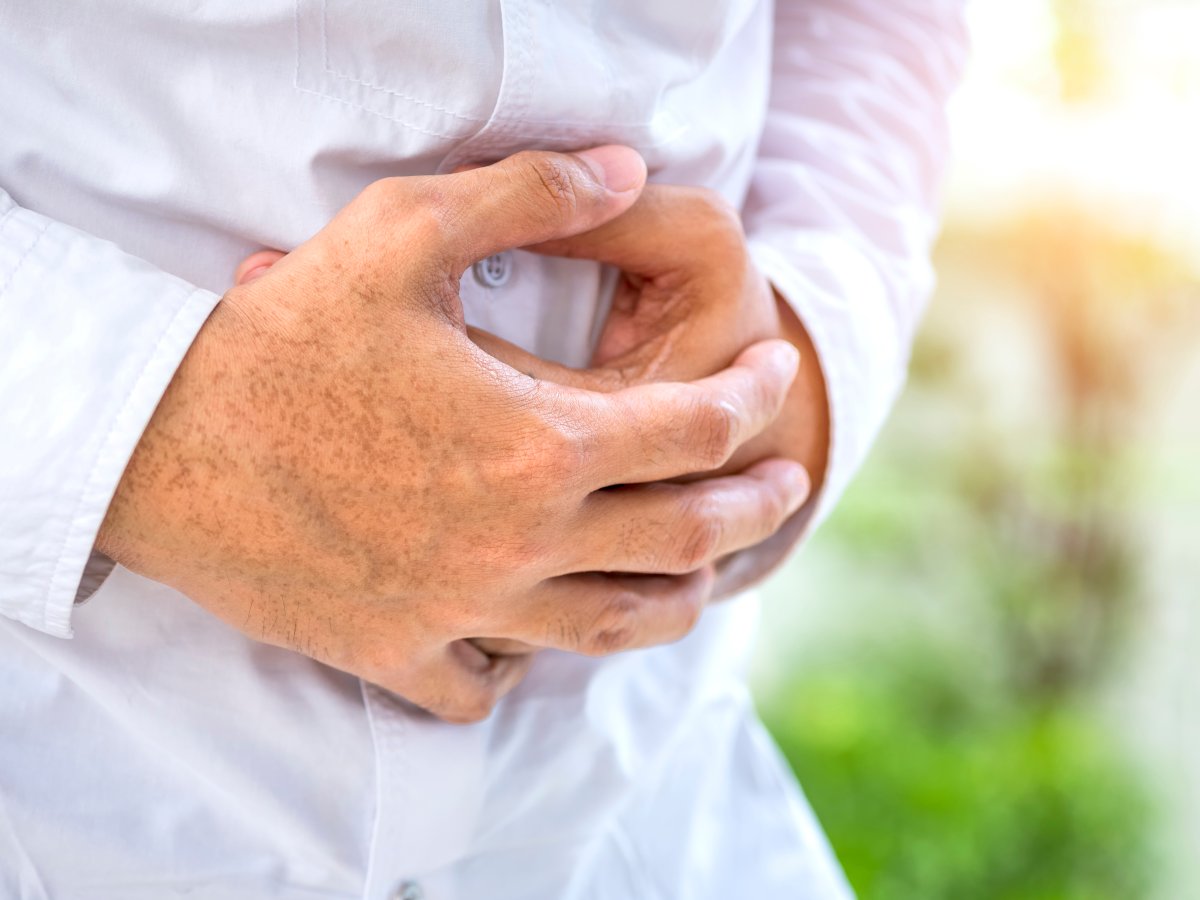Belly bloat, that uncomfortable feeling of distention and pressure in the abdomen, can happen frequently in some people and its effects can wreck havoc on your well-being. From problems like struggling to zip up your pants to painful gas, it’s important to know how to tamper belly bloat and its unpleasant repercussions.

WATCH BELOW: How to lose belly fat, according to experts

“A lot of cases of bloating can be avoided with lifestyle changes,” says Abby Langer, a Toronto-based registered dietitian. “But what many people don’t realize is when you’re increasing your intake of fruits and vegetables, switching from a diet that’s full of junk food to eating whole foods, you’ll also increase your intake of fibre and that will bloat you.”
“But the bloating is secondary to the benefits of a cleaner diet. Plus, your body will eventually grow accustomed to the extra fibre and you’ll be less prone to bloating.”
If, however, you find you’re often excessively bloated but haven’t made any changes to your diet, it’s important to consult a physician to ensure there aren’t any underlying medical issues, like impaired muscle function in the digestive tract or an enlarged abdominal organ.
Below, Langer offers tips on how to deal with some common causes of bloating and how to lessen their effects.
Bloating from constipation
In constipation, the bowels don’t evacuate thus allowing leftover waste to build up in the colon. This, along with trapped gas, will cause the lower abdomen to bloat and create a feeling of discomfort.
“Massaging your abdomen can help ease the bloating from constipation,” Langer says.
READ MORE: Six-pack abs are even harder to achieve than you think
Try rubbing your belly in a U-shape, starting from the lower right side of the abdomen, up to the rib cage, across to the other side and back down mimicking the letter “U.” This is the direction that food moves through the colon to the rectum, and it could help ease pain from constipation as well as move things along.
Bloating from eating too much
“When you eat too much, your stomach will expand. This is a physical response and there isn’t much to do except to avoid overeating,” Langer says.
The bloating will be even worse if you’ve overeaten fatty foods, since high fat foods take a lot longer to go through the digestive process.
Drinking teas like chamomile, licorice or ginger can help facilitate gut movement and reset the balance of bacteria in your gut, thus helping to break things down faster. But the real takeaway is to avoid overeating and listen to your body’s cues when it has had enough food.
Bloating from PMS
A vast number of women may experience abdominal bloating in the one to two weeks leading up to and throughout their period. This is largely due to fluctuations in estrogen and progesterone hormone levels, and the ensuing salt and water retention that comes with them.
“People think that it’s counterproductive, but if you’re bloated from retaining water, the best thing to do is to drink more water to help flush it out,” Langer says.
She also advises eating foods that act as natural diuretics like asparagus, parsley, strawberries, watermelon, grapes, celery, onions, garlic and bell peppers.
READ MORE: Belly fat can be cause for concern even if you’re not overweight: study
Bloating from alcohol
This one’s a bit of a head-scratcher because there are a couple of contradictory things happening: on the one hand, alcohol is a diuretic, so it should naturally help you expel extra water, but on the other, it also dehydrates and when you’re dehydrated, you hang on to whatever water you have in your body, which in turn can cause retention.
“If you’re bloated after a night out drinking, it’s likely due to the fact that you’re dehydrated from alcohol, but it’s also probably from the pizza you ate at five o’clock in the morning,” Langer says.
As such, the only answer is to drink water and lots of it.
Bonus: Steer clear of xylitol and carbonation
If you’ve recently started chewing gum more often and find that you’re gassier, your new habit could be to blame.
“Xylitol is a common artificial sweetener whose effects will, among other things, cause bloating. Combine that with the fact that when you chew gum, you naturally inhale more air, that’s going to cause a buildup in your abdomen and you’ll feel more bloated.”
The same goes for carbonated drinks, even water.
“It’ll just sit in your gut and make you feel really bloated. You’re literally drinking gas.”






Comments